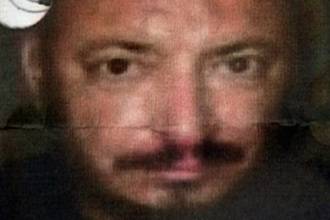Iraq, the insurgency, and the capture of Omar al-Baghdadi.
 There have been many false dawns in Iraq since the 2003 invasion, none more so than the killing of Abu Musab al-Zarqawi, the leader of al-Qaida in Iraq, although the group was more properly known as the Mujahideen Shura Council at the time. Although the insurgency in Iraq was always far more varied than just involving Zarqawi's group, which was renamed al-Qaida in Iraq after he pledged allegiance to Osama bin Laden, having formerly dreamt of building his own rival terror organisation, over-the-top media coverage and Zarqawi's brutal tactics, especially the beheading of foreign hostages, some of which he supposedly carried out himself, meant that his death was given far more significance than it was probably due. Reports of the capture of al-Zarqawi's self-proclaimed successor, Abu Omar al-Baghdadi, do little other than suggest that there will still be life in the Iraqi insurgency for some time yet.
There have been many false dawns in Iraq since the 2003 invasion, none more so than the killing of Abu Musab al-Zarqawi, the leader of al-Qaida in Iraq, although the group was more properly known as the Mujahideen Shura Council at the time. Although the insurgency in Iraq was always far more varied than just involving Zarqawi's group, which was renamed al-Qaida in Iraq after he pledged allegiance to Osama bin Laden, having formerly dreamt of building his own rival terror organisation, over-the-top media coverage and Zarqawi's brutal tactics, especially the beheading of foreign hostages, some of which he supposedly carried out himself, meant that his death was given far more significance than it was probably due. Reports of the capture of al-Zarqawi's self-proclaimed successor, Abu Omar al-Baghdadi, do little other than suggest that there will still be life in the Iraqi insurgency for some time yet.Like with Zarqawi and with the other man who may well be the real leader of the self-proclaimed Islamic State of Iraq, Abu Hamza al-Muhajir, Baghdadi has been presumed both dead and captured before, but for now it does seem as if he has been arrested. This itself may come as a surprise to some within the US army, who have claimed repeatedly that Baghdadi does not actually exist, instead a phantom that gives an Iraqi leadership to a group which has always been regarded by others in the insurgency as being of foreign origin, but photographs of the man have supposedly previously emerged, showing someone who looks to be suffering from pattern baldness.
How much influence or control Baghdadi actually had over the organisation is impossible to know. Apart from irregular audio messages issued as videos, none of which Baghdadi has formally appeared in, unlike the gregarious al-Zarqawi, all of which give credence to the idea that he is simply a puppet to the formal "Minister for War" al-Muhajir, he doesn't seem to have done anything other than contribute to the war of words which ultimately led to the split between the insurgent groups and with it the rise of the Awakening councils, almost completely composed of former insurgents, although few were members of al-Qaida, or the ISI. The recent rise in violence in the country, although nowhere near the levels of 2004 to mid-2007, attributed by some to the dissolution of the Awakening councils in certain areas, reflects the difficulty with which those who have been ostensibly fighting for the last six years will be reintegrated into Iraqi society. Contributing to the problems is that a Shia government is simply not trusted by the Sunni fighters; their sudden dissolution threatens to be a repeat of the disbanding of the Iraqi army, almost certainly the biggest factor behind the rise of the insurgency.
From controlling almost all of the so-called "Sunni Triangle" at one point, the Islamic State of Iraq has been pushed back into the provinces of Diyala and Mosul, where the Salafist jihadist groups, which also includes Ansar al-Islam, are still reasonably strong. It's difficult to know just how much of an effect al-Baghdadi's arrest might have on the groups and their supporters, especially considering how unknown his power has been, and while al-Zarqawi's death was actively mourned by jihadists, it will still be some sort of a setback to the group. The suicide bombings today, which are almost certainly coincidences rather than the group striking back, show that the ISI still has the capability to carry out devastating attacks, but on a far reduced scale. The insurgency in general, which has been in decline since its high point at the heighth of the civil war which al-Qaida in Iraq did much to foment, seems to be shifting up a gear, if the number of videos released by the groups is a measure to go by. The real problem in Iraq though remains reconciliation between the Sunni and Shia, which despite some reasonably encouraging results in the recent elections, where secularists appeared to win out against the religious parties, seems as far away as ever. Al-Baghdadi's arrest will do nothing whatsoever to alter that.
Labels: Awakening councils, Iraq, Iraq disaster, Iraq insurgency, Islamic State of Iraq, jihadists, Omar al-Baghdadi

